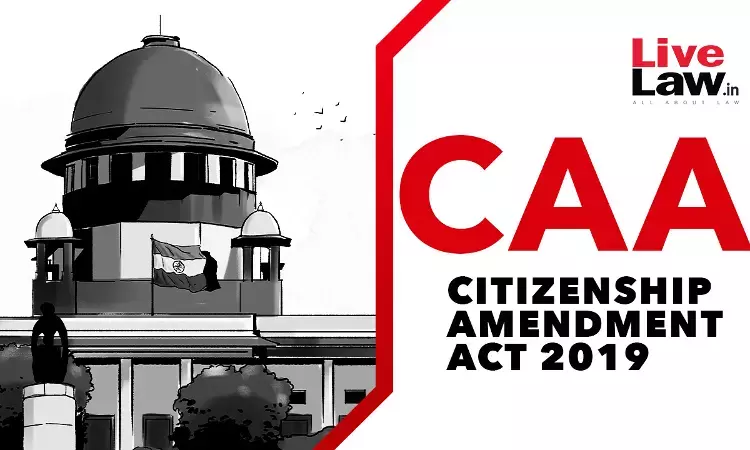CAA Challenge: Supreme Court Issues Notice To Union On Pleas To Stay Citizenship Amendment Act & Rules, Posts On April 9
Awstika Das
19 March 2024 2:53 PM IST

Next Story
19 March 2024 2:53 PM IST
The Supreme Court on Tuesday (March 19) issued notice to the union government on a batch of applications seeking to stay the Citizenship Amendment Act (CAA) and the Citizenship Amendment Rules 2024. Seeking the Union's response, the court posted the matter on April 9.A bench of Chief Justice DY Chandrachud, and Justices JB Pardiwala and Manoj Misra adjourned today's hearing on Solicitor...
